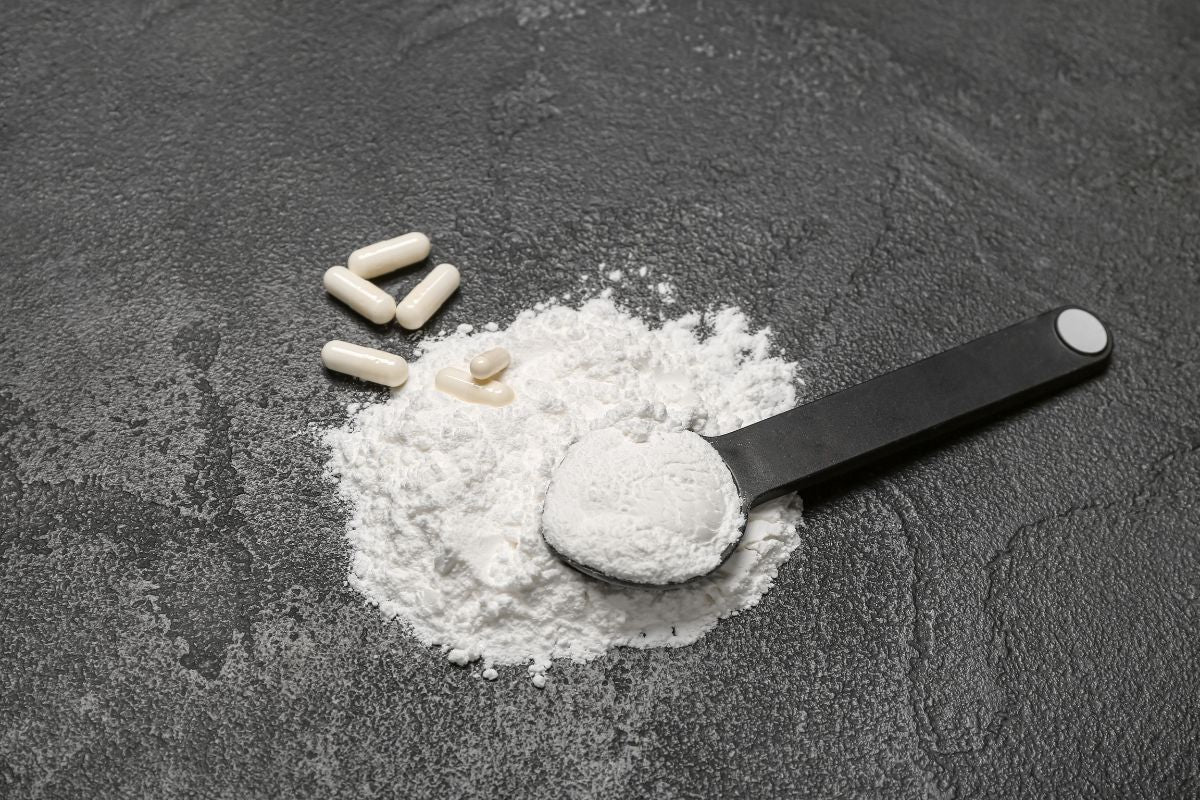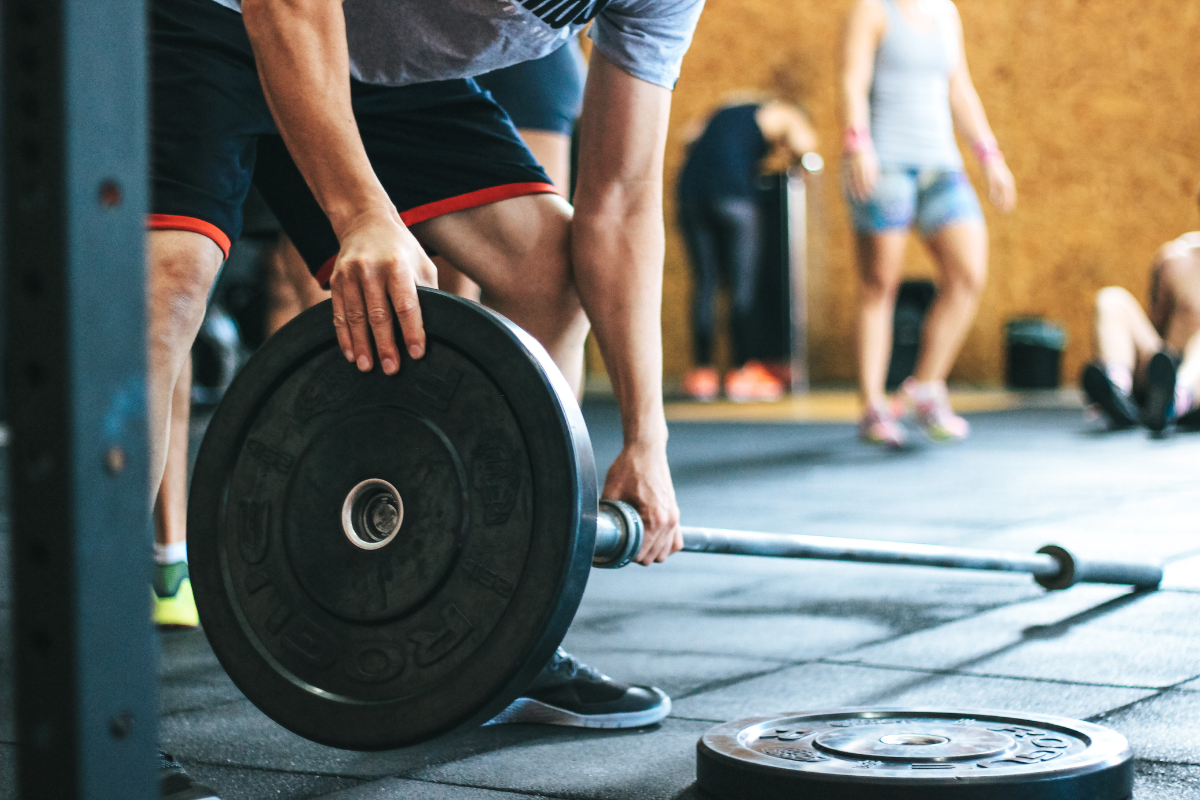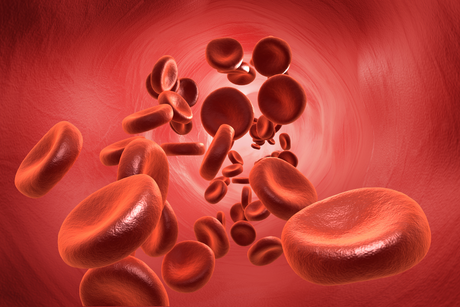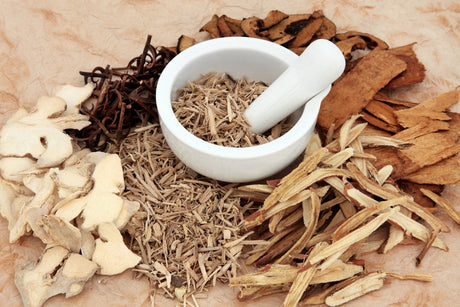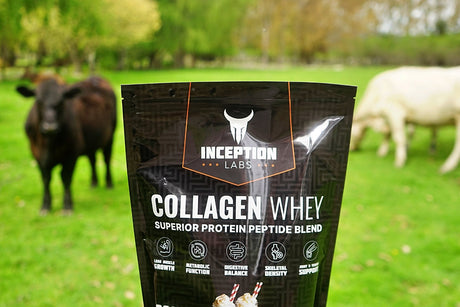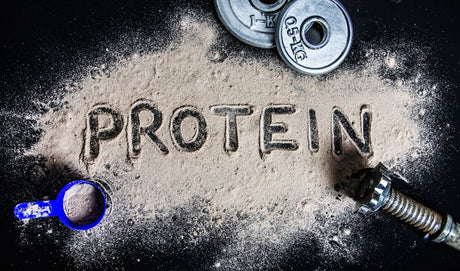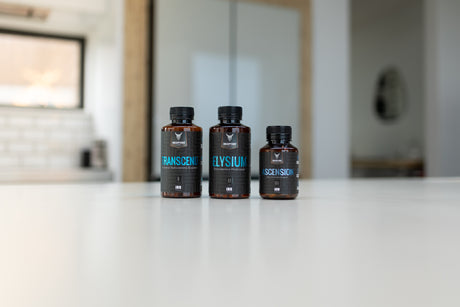Creatine, a naturally occurring compound in the body, has garnered significant attention in the realms of sports science and nutrition for its potential to enhance physical performance and cognitive function. This compound, scientifically known as methylguanidine-acetic acid, is synthesized from the amino acids arginine, glycine, and methionine primarily in the kidneys and liver (Bemben & Lamont, 2005). It can also be obtained exogenously from dietary sources, particularly meat products (Brosnan & Brosnan, 2016), or through supplementation.
The popularity of creatine supplementation stems from its multifaceted benefits that extend beyond the realm of athletic performance. From cognitive enhancement to potential influences on hormone status, creatine has shown promise in various aspects of health and well-being. However, like any supplement, it’s essential to understand the potential side effects and how to mitigate them. This comprehensive guide aims to delve into the world of creatine supplementation, exploring its benefits, mechanisms of action, potential side effects, and more.
Whether you’re an athlete looking to enhance your performance, or someone interested in the broader health implications of creatine supplementation, this guide seeks to provide a thorough understanding of this fascinating compound.
Benefits of Creatine Supplementation
Creatine supplementation has been extensively studied for its potential to enhance athletic performance in various ways.
Energy Production
Creatine plays a pivotal role in the body’s energy production systems, particularly during high-intensity activities. It aids in the rapid production of adenosine triphosphate (ATP), the body’s primary energy currency. ATP is used by muscle cells to fuel contractions, which is crucial during high-intensity workouts.
Power Output
Research has demonstrated that creatine can increase power output by up to 45% over control (Rawson & Volek, 2003). This means that athletes supplementing with creatine can lift heavier weights, sprint faster, or perform any high-intensity activity more effectively.
Endurance and Recovery
Creatine has also been shown to reduce exercise-induced fatigue and improve endurance. This allows athletes to train harder and longer, leading to improved performance over time (Law, Ong, GillianYap, Lim, & Chia, 2009). Additionally, creatine may aid in recovery after intense workouts by replenishing ATP stores more quickly.
Energy Pathways
The human body has three primary energy pathways: aerobic, anaerobic, and phosphagen (or creatine phosphate) system.
- Aerobic System: This system uses oxygen to convert macronutrients (carbohydrates, fats, and proteins) into ATP. It’s the primary energy system during low-intensity, long-duration activities.
- Anaerobic System: This system generates ATP in the absence of oxygen by breaking down glucose. It’s primarily used during high-intensity, short-duration activities.
- Phosphagen System: This system uses creatine phosphate to rapidly produce ATP during extremely high-intensity activities lasting for short durations (about 1 to 30 seconds). This is where creatine supplementation comes into play.
By supplementing with creatine, you can increase the availability of creatine phosphate in your muscles, thereby enhancing the capacity of the phosphagen system. This can lead to improvements in performance during high-intensity activities such as sprinting or powerlifting.
Lean Mass
The secondary health advantage of creatine supplementation lies in its capacity to enhance not only athletic prowess but also lean and muscular mass. A comprehensive meta-analysis encompassing over a hundred studies has deduced that creatine can consistently augment lean mass (Branch, 2003).
Creatine bolsters lean mass through several mechanisms. Primarily, it amplifies work capacity. The methodology of muscle mass development is relatively uncomplicated and hinges on three pivotal factors: a progressive escalation in workload, protein consumption, and caloric intake. When diet, protein, and caloric intake are accounted for, the sole method to augment muscle mass is to escalate workload, a process that creatine efficaciously facilitates.
Secondarily, creatine has been demonstrated to enhance muscle hydration (Easton, Turner, & Pitsiladis, 2007). From a biochemical perspective, creatine is a hydrophilic molecule, implying its propensity to attract water. When muscles are saturated with creatine, it not only draws creatine into the muscle cells but also water. This inherently augments the weight of the muscle tissue and ameliorates the hydration status of the muscle, thereby indirectly escalating workload, and consequently muscular mass.
Lastly, creatine augments muscular mass by aiding in the enhancement of glycogen storage (van Loon, et al., 2004). Glycogen represents the primary form in which glucose is stored in the body for subsequent utilization as energy. By augmenting glycogen storage in muscles, creatine furnishes an additional energy source for intense physical exertion.
Cognitive Enhancement
Energy Production in the Brain
Just like in muscles, creatine plays a crucial role in energy production in the brain. The brain uses a significant amount of energy, and efficient energy production is essential for optimal cognitive function. Creatine aids in the rapid production of ATP, the brain’s primary energy currency.
Cerebral Oxygen Utilization
One study suggests that creatine may enhance cognition by increasing cerebral oxygen utilization (Watanabe, Kato, & Kato, 2002). The brain, like the rest of the body, uses oxygen to produce energy. However, unlike the rest of the body, the brain almost exclusively uses glucose as an energy substrate. Glucose requires oxygen for utilization, and without enough oxygen, energy utilization processes significantly slow down. Therefore, by increasing the brain’s ability to utilize oxygen, creatine also enhances the brain’s energy production capabilities.
Phosphagen System in Nerve Cells and Brain Cells
Creatine enhances the function of the phosphagen system not just in muscle cells but also in nerve cells and brain cells. When stores of creatine increase in these cells, it theoretically and practically increases the level of ATP produced at an extremely high rate, thereby increasing cognitive output, especially during periods of high energy demand.
Glutamate Signalling
Lastly, creatine has the potential to improve cognition by enhancing glutamate signalling within the brain and central nervous system. Glutamate primarily signals through the NMDA receptor within the central nervous system and is one of your primary stimulatory neurotransmitter receptors. By improving the signalling of this pathway, creatine enhances overall stimulation and increases the brain’s capacity to process information.
Hormone Status
Testosterone Levels
Creatine appears to increase testosterone levels in men by up to 15% (Vatani, Faraji, Soori, & Mogharnasi, 2001). Testosterone is a primary male sex hormone that plays a key role in muscle growth and development, fat distribution, and red blood cell production. By increasing testosterone levels, creatine supplementation could potentially contribute to improved muscle mass and strength.
Dihydrotestosterone (DHT) Levels
In addition to testosterone, creatine supplementation may also increase levels of dihydrotestosterone (DHT) by up to 56% (van der Merwe, Brooks, & Myburgh, 2009). DHT is a biologically active metabolite of testosterone that is primarily associated with traits often considered “masculine,” such as body hair growth and muscle mass. However, it’s worth noting that elevated DHT levels have been associated with hair loss.
While the mechanisms behind these hormonal changes are not fully understood yet, they could be related to creatine’s role in energy metabolism and its impact on exercise performance and recovery.
Mood Enhancement
Depression and Mental Fatigue
Some research suggests that creatine supplementation can reduce symptoms of depression and improve mood, particularly in mentally fatigued individuals (Roitman, Green, Osher, Karni, & Levine, 2007). This could be due to its role in energy production in the brain, enhancing the function of the phosphagen system in nerve cells and brain cells, and enhancing glutamate signalling within the brain and central nervous system.
Methylation Status
One possible mechanism for this effect could be improvements in methylation status (Freilinger, et al., 2011). Methylation, a biochemical process that is crucial for proper functioning of the body, has been linked to mood regulation. Creatine may improve methylation status, particularly in individuals who are under-methylated or not methylating properly.
Neurotransmitter Levels
Lastly, creatine may improve mood by preserving and increasing levels of the neurotransmitters serotonin and dopamine. These neurotransmitters are typically associated with improvements in mood, feelings of satisfaction, safety, motivation, and pleasure. While creatine may not traditionally be considered a mood-enhancing supplement, emerging research suggests that it could potentially have significant effects on mood regulation.
Side Effects of Creatine Supplementation
Hair Loss
One potential side effect of creatine supplementation that often concerns individuals is hair loss. While there is anecdotal evidence of increased hair loss upon starting creatine supplementation, this has not been definitively established.
Dihydrotestosterone (DHT) Levels
A specific study conducted in 2009 on college-age rugby players found increased levels of DHT, following three weeks of creatine supplementation, However, the study did not assess hair loss in the participants, and the increase in DHT levels was still within normal physiological ranges (van der Merwe, Brooks, & Myburgh, 2009). Moreover, significant differences were due to changes from different baseline levels of DHT, meaning the differences can’t be attributed to creatine supplementation based on these study results.
Genetic Predisposition
It is worth noting that most hair loss, especially male-pattern baldness, stems from a genetic trait passed down from your parents. Therefore, individuals already experiencing hair loss or those with a family history of significant hair loss might want to reconsider creatine supplementation.
While there is some evidence suggesting a link between creatine supplementation and increased DHT levels, more research is needed to definitively establish whether this increase is sufficient to promote hair loss.
Kidney Function
One of the more common concerns about creatine supplementation is its potential impact on kidney function.
Creatinine Levels
Creatinine, a waste product formed by the breakdown of creatine, is often used as a biomarker for kidney function. Under normal conditions, creatinine is produced at a constant rate and is excreted by the kidneys. However, creatine supplementation can increase blood creatinine levels, which could potentially be mistaken for impaired kidney function.
Kidney Health in Healthy Individuals
Despite these concerns, research has shown that creatine supplementation does not appear to affect kidney function in healthy individuals. A comprehensive review by the International Society of Sports Nutrition concluded that creatine supplementation does not impair kidney function in individuals who have no pre-existing renal disease (Mayhew, Mayhew, & Ware, 2002).
Kidney Health in Individuals with Pre-Existing Conditions
One study even examined the effects of creatine intake on individuals who already had kidney damage and found no additional damage to the kidneys (Gualano, et al., 2011). Thus, based on current research, it is well established that creatine does not cause kidney damage.
Gastrointestinal Discomfort
Digestive Discomfort
Taking too much creatine at once can lead to digestive discomfort, including nausea, diarrhoea, and stomach cramps. This is because the body may struggle to digest and absorb a large amount of creatine all at once.
Bloating
Creatine bloating is a phenomenon that most often occurs during the loading phase when beginning to supplement with creatine. The loading phase consists of taking a larger amount of creatine than you would for regular usage, for a certain period of time. Following a loading phase, a maintenance dosage can then be applied to maintain optimal muscle stores (Powers, et al., 2003).
Mitigation side-effects
To avoid gastrointestinal discomfort, it’s generally a good idea to increase fluid intake while supplementing with creatine. Consuming creatine with increased levels of water can prevent the body from having to pull fluid out of the bloodstream, which can cause cramping associated with creatine. If you are consistently experiencing an upset stomach while consuming creatine, you could either decrease the amount of creatine you are taking or simply increase your fluid intake.
Creapure
Another method for avoiding the bloating that comes with creatine’s loading phase is by switching to Creapure. Creapure is a form of creatine monohydrate and is widely considered to be the purest and finest quality micronized Creatine Monohydrate on the market today. Made by AlzChem in Germany, it undergoes a slightly different manufacturing process to make it ‘purer’, which is one of the reasons it’s the preferred creatine for many professional strength, speed, and power athletes.
Some advantages of Creapure over standard Creatine Monohydrate:
- Purity: Creapure is renowned for its purity, as it is produced using a patented manufacturing process that results in no by-products or impurities.
- Safety: Due to its high purity, Creapure is safe. It’s free from any banned substances, making it a trusted choice for professional athletes.
- Effectiveness: Some users report that Creapure provides more noticeable results compared to standard creatine monohydrate.
- Absorption: Creapure is micronized, which means it has been made into particles that are smaller than those found in standard creatine monohydrate. This can lead to better absorption and utilization in the body.
The Loading Phase of Creatine Supplementation
When starting creatine supplementation, a common practice is to begin with a “loading phase.” This phase involves taking a relatively high dose of creatine for a short period to quickly saturate the muscles with creatine.
Why a Loading Phase?
The rationale behind the loading phase is to rapidly maximize muscle creatine stores. As most of the benefits from taking creatine only show up after your muscle tissue is saturated (Kreider, et al., 2017), the loading phase aims to achieve this saturation quickly.
How Does It Work?
During the loading phase, one typically consumes around 20 to 25 grams of creatine per day for 5 to 7 consecutive days (Gann, McKinley-Barnard, Andre, Schoch, & Willoughby, 2015). This high intake is thought to saturate the muscles with creatine faster than lower doses. After the loading phase, a lower daily intake (around 3 to 5 grams) is recommended to maintain elevated muscle creatine stores.
Is It Necessary?
While a loading phase can speed up the process of muscle saturation, it’s not strictly necessary. Even without a loading phase, taking a standard daily dose of creatine (about 3 to 5 grams) will eventually lead to similar levels of muscle saturation; it just takes a bit longer (around three to four weeks) (Hall & Trojian, 2013).
Considerations
While the loading phase can be beneficial for quicker results, it may also lead to some side effects such as gastrointestinal discomfort due to the high amount of creatine consumed. To mitigate this, it’s generally recommended to split the daily dose into smaller portions spread throughout the day. Whether to include a loading phase in your creatine supplementation regimen depends on your individual goals, tolerance, and patience.
Timing of Creatine Supplementation
Workout Days
During workout days, it might be more advantageous to consume creatine around your exercise time, either pre or post-workout. A study conducted by Antonio & Ciccone (2013) observed a significant increase in lean mass and strength among participants who took creatine post-exercise. Conversely, other studies (Candow, Vogt, Johannsmeyer, Forbes, & Farthing, 2015) (Candow, et al., 2014) found no discernible difference between pre and post-exercise creatine consumption. In summary, the current body of research does not conclusively establish whether taking creatine before or after exercise offers any consistent benefits (Ribeiro, et al., 2021).
Rest Days
On rest days, you can take your creatine at any time as it is less critical than on workout days. The key is consistency. Regular consumption is what leads to increased muscle stores.
Personal Preference
The timing of creatine supplementation often comes down to personal preference. Some people find it easier to take it in the morning, while others prefer to take it at night. What matters most is getting it into your system consistently. While there may be slight advantages to taking creatine close to your workout time on training days, the most important factor is regular and consistent consumption.
Conclusion
In conclusion, creatine, a naturally occurring compound synthesised in the body and obtained through diet or supplementation, offers multifaceted benefits. It enhances athletic performance by improving energy production, power output, endurance, and lean mass. Creatine also plays a crucial role in cognitive enhancement, positively impacting brain energy production, oxygen utilisation, and neurotransmitter levels. Additionally, it may influence hormone status and mood. Despite concerns about side effects like hair loss and kidney function, current research suggests creatine is generally safe. Understanding individual goals and preferences, coupled with consistent consumption, is key to optimising creatine supplementation.
Supplement Solutions recommends Inception Labs Creatine Monohydrate
References
Antonio, J., & Ciccone, V. (2013, Aug 6). The effects of pre versus post workout supplementation of creatine monohydrate on body composition and strength. J Int Soc Sports Nutr, 10, 36. doi:10.1186/1550-2783-10-36
Bemben, M. G., & Lamont, H. S. (2005). Creatine supplementation and exercise performance: recent findings. Sports Med, 35(2), 107-25. doi:10.2165/00007256-200535020-00002
Branch, J. D. (2003, Jun). Effect of creatine supplementation on body composition and performance: a meta-analysis. Iny K Sport Nutr Exerc Metab, 13(2), 198-226. doi:10.1123/ijsnem.13.2.198
Brosnan, M. E., & Brosnan, J. T. (2016, Aug). The rose of dietary creatine. Amino Acids, 48(8), 1785-91. doi:10.1007/s00726-016-2188-1
Candow, D. G., Vogt, E., Johannsmeyer, S., Forbes, S. C., & Farthing, J. P. (2015, Jul). Strategic creatine supplementation and resistance training in healthy older adults. Appl Physiol Nutr Metab, 40(7), 689-94. doi:10.1139/apnm-2014-0498
Candow, D. G., Zello, G. A., Ling, B., Farthing, J. P., Chilibeck, P. D., McLeod, K., . . . Johnson, S. (2014). Comparison of creatine supplementation before versus after supervised resistance training in healthy older adults. Res Sports Med, 22(1), 61-74. doi:10.1080/15438627.2013.852088
Easton, C., Turner, S., & Pitsiladis, Y. P. (2007, Feb). Creatine and glycerol hyperhydration in trained subjects before exercise in the heat. Int J Sports Nutr Exerc Metab, 17(1), 70-91. doi:10.1123/ijsnem.17.1.70
Freilinger, M., Dunkler, D., Lanator, I., Item, C. B., Muhl, A., Fowler, B., & Bodamer, O. A. (2011, Jul-Aug). Effects of creatine supplementation in Rett syndrome: a randomized, placebo-controlled trail. J Dev Behav Pediatr, 32(6), 454-60. doi:10.1097/DBP.0b013e31822177a8
Gann, J. J., McKinley-Barnard, S. K., Andre, T. L., Schoch, R. D., & Willoughby, D. S. (2015). Effects of a traditionally-dosed creatine supplementation protocol and resistance training on the skeletal muscle uptake and whole-body metabolism and retention of creatine in males. J Int Soc Sports Nutr, 12(Suppl 1), P2. doi:10.1186/1550-2783-12-S1-P2
Gualano, B., Painelli, V. d., Roschel, H., Lugaresi, R., Dorea, E., Artioli, G. G., . . . Lancha Junior, A. H. (2011, May). Creatine supplementation does not impair kidney function in type 2 diabetic patients: a randomized, double-blind, placebo-controlled, clinical trail. Eur J Appl Physiol, 111(5), 749-56. doi:10.1007/s00421-010-1676-3
Hall, M., & Trojian, T. H. (2013, Jul-Aug). Creatine supplementation. Curr Sports Med Rep, 12(4), 240-4. doi:10.1249/JSR.0b013e31829cdff2
Kreider, R. B., Kalman, D. S., Antonio, J., Ziegenfuss, T. N., Wildman, R., Collins, R., . . . Lopez, H. L. (2017). International Society of Sports Nutrition position stand: safety and efficacy of creatine supplementation in exercise, sport, and medicine. J Int Soc Sports Nutr, 14, 18. doi:10.1186/s12970-017-0173-z
Law, Y. L., Ong, W. S., GillianYap, T. L., Lim, S. J., & Chia, E. V. (2009, May). Effects of two and five days of creatine loading on musclar strength and anaerobic power in trained athletes. J Strength Cond Res, 23(3), 906-14. doi:10.15.19/JSC.0b013e3181a06c59
Mayhew, D. L., Mayhew, J. L., & Ware, J. S. (2002, Dec). Effect of long-term creatine supplementation on liver and kidney functions in American college football players. Int J Sport Nutr Exerc Metab, 12(4), 453-60. doi:10.1123/ijsnem.12.4.453
McMorris, T., Harris, R. C., Howard, A. N., Langridge, G., Hall, B., Cornett, J., . . . Hodgson, C. (2007, Jan 30). Creatine supplementation, sleep deprivation, cortisol, melatonin and behavior. Physiol Behav, 90(1), 21-8. doi:10.1016/j.physbeh.2006.08.024
McMorris, T., Harris, R. C., Swain, J., Corbett, J., Collard, K., Dyson, R. J., . . . Draper, N. (2006, Mar). Effect of creatine supplementation and sleep deprivation, with mild exercise, on cognitive and psychomotor proformance, mood state, and plasma concentrations of catecholamines and cortisol. Psychopharmacology (Berl), 185(1), 93-103. doi:10.1007/s00213-005-0269-z
Powers, M. E., Arnold, B. L., Weltman, A. L., Perrin, D. H., Mistry, D., Kahler, D. M., . . . Volek, J. (2003, Jan-Mar). Creatine Supplementation Increases Total Body Water Without Altering Fluid Distribution. J Athl Train, 38(1), 44-50.
Rawson, E. S., & Volek, J. S. (2003, Nov). Effects of creatine supplementation and resistance training on muscle strength and weightlifting performance. J Strength Cond Res, 17(4), 822-31. doi:10.1519/1533-4287(2003)017<0822:eocsar>2.0.co;2
Ribeiro, F., Longobardi, I., Perim, P., Duarte, B., Ferreira, P., Gualano, B., . . . Saunders, B. (2021, Aug). Timing of Creatine Supplementation around Exercise: A Real Concern? Nutrients, 13(8), 2844. doi:10.3390/nu13082844
Roitman, S., Green, T., Osher, Y., Karni, N., & Levine, J. (2007, Nov). Creatine monohydrate in resistant depression: a preliminary study. Bipolar Disord, 9(7), 754-8. doi:10.1111/j.1399-5618.1007.00532.x
van der Merwe, J., Brooks, N. E., & Myburgh, K. H. (2009, Sep). The weeks of creatine monohydrate supplementation affects dihydrotestosterone to testosterone ratio in college-aged rugby players. Clin J Sport Med, 19(5), 399-404. doi:10.1097/JSM.0b013e3181b8b52f
van Loon, L. J., Murphy, R., Oosterlaar, A. M., Cameron-Smith, D., Hargreaves, M., Wagenmakers, A. J., & Snow, R. (2004, Jan). Creatine supplementation increases glycogen storage but not GLUT-4 experssion in human skeletal muscle. Clin Sci (Lond), 106(1), 99-106. doi:10.1042/CS20030116
Vatani, D. S., Faraji, H., Soori, R., & Mogharnasi, M. (2001, November). The effects of creatine supplementation on performance and hormonal response in amateur swimmers. Science & Sports, 26(5), 272-277. doi:10.1016/jscispo.2011.07.003
Watanabe, A., Kato, N., & Kato, T. (2002, Apr). Effects of creatine on mental fatigue and cerebral hemoglobin oxygenation. Neurosci Res, 42(4), 279-85. doi:10.1016/s0168-0102(02)00007-x

